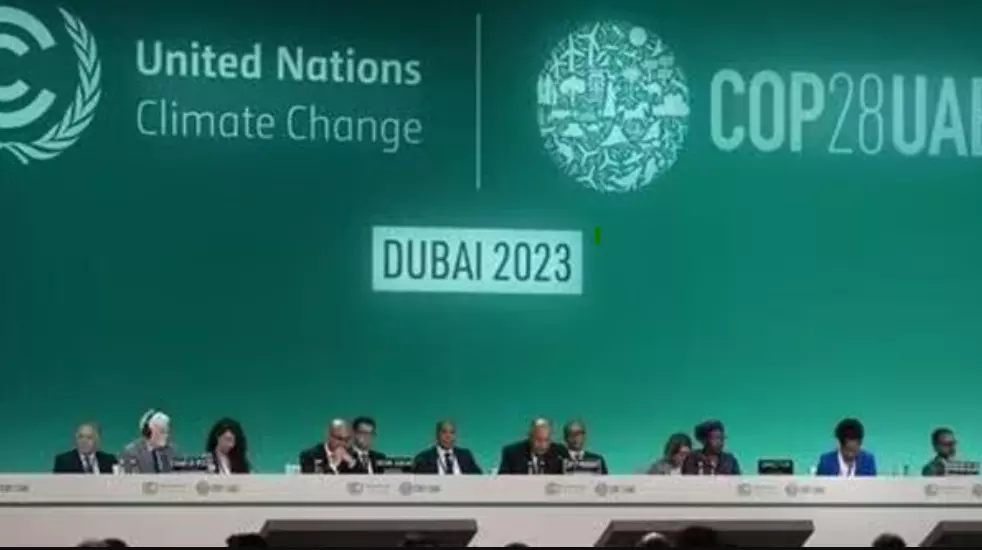A stepping stone

In a groundbreaking achievement for climate justice, the 28th Conference of Parties (COP28) to the United Nations Framework Convention on Climate Change witnessed the operationalisation of the Loss and Damage Fund (LDF) on its inaugural day. The initial funding, totalling USD 475 million, represents a collaborative effort by both developing and developed countries. The host UAE pledged USD 100 million, the European Union committed USD 275 million, and the United States contributed USD 17.5 million, with the promise of more funds in the near future. While this move is commendable, it's essential to acknowledge the stark reality that the pledged amount falls significantly short of the trillions required to effectively address the challenges posed by climate change. Despite the apparent insufficiency, there is optimism that the operationalisation of the Loss and Damage Fund is just the beginning, with expectations that funds will scale up over time. However, this positive outlook is accompanied by a cloud of uncertainties hovering over the character, timing, and periodicity of the pledged finances. The full measure of the operationalised Loss and Damage Fund remains elusive, raising questions about its potential impact in the long run. It's imperative to scrutinise these uncertainties, which could potentially impede the fund's effectiveness. One major cause for concern is the persisting discord between developed and developing nations. Reflecting on the events at COP27 in Egypt, where the agreement on the Loss and Damage Fund was initially reached, we find a trail of unsuccessful attempts to determine how the funds would be disbursed. Four meetings of the Transitional Committee (TC) were held within a year, but consensus remained elusive. An urgent fifth meeting, TC5, became necessary, compelling both developed and developing nations to compromise on their stances to ensure the operationalisation of the fund. A significant compromise arose when developing countries reluctantly accepted the World Bank as the host for the Loss and Damage Fund after much resistance. The World Bank, perceived by many developing nations as a neo-colonial institution, was criticised for being unfair, undemocratic, and biased in favour of Western nations, particularly the United States. Despite these reservations, recognising the vitality of the fund, developing countries agreed to a four-year interim period with certain conditions. These conditions include ensuring eligibility for all developing countries to access the fund, establishing direct access to vulnerable communities through national governments, and providing access for countries that are not members of the World Bank. These concessions highlight the delicate balance struck between the urgent need to address climate-related losses and damages and the deep-rooted mistrust of international financial institutions. However, despite the compromises and inherent limitations, the operationalisation of the Loss and Damage Fund stands as a significant milestone. The Intergovernmental Panel on Climate Change (IPCC) predicts an increase in losses and damages as global warming continues. The impacts will be unevenly distributed, hitting developing nations the hardest, particularly the socially and financially vulnerable sections of these societies. In light of these predictions, it is crucial for the progress made at COP28 to be sustained with a positive momentum, rather than regressing. The global community must recognise the urgency of the situation. Climate change does not discriminate, and its consequences will be felt worldwide. COP28's achievements must be a stepping stone toward a more concerted and inclusive effort to address climate-related challenges, ensuring a sustainable and equitable future for all.



